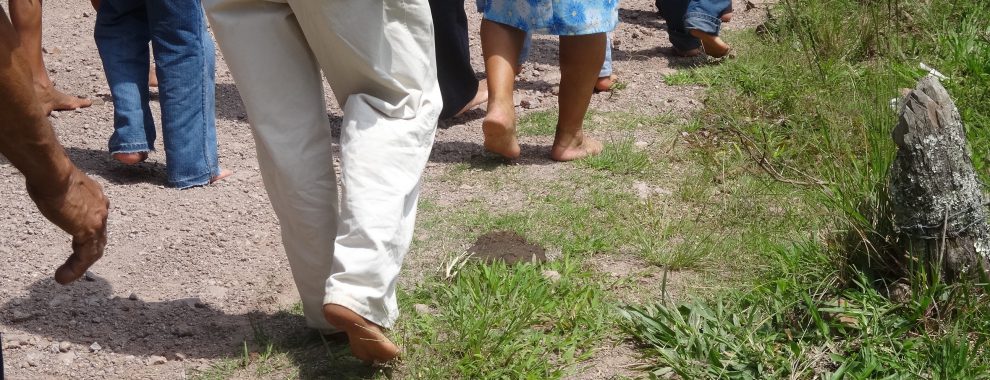Praying today’s Gospel of the man born blind, John 9: 1-41, I found the account full of meaning, but one stands out for me.
The man born blind was a beggar, well-known to many but marginalized by his blindness, which many thought was due to sin.
But what happens to him is illuminative.
Jesus sees him and takes the initiative, anointing his eyes with clay and inviting him to wash in the pool of Siloam. He is then healed.
Jesus has transformed him from a blind man to a man who sees.
But then he is brought before the authorities who question him. But unlike his parents, he is not afraid to speak to them, challenging them for their ignorance, and getting himself thrown out – marginalized again.
He has been changed from a passive beggar to a man who is not afraid to speak the truth and to challenge those who would consider Jesus and himself as sinners, as outside the “chosen” ones.
Then, Jesus again takes the initiative and finds the man who had been blind.
This man who, at first, only knew that he had been healed by “a guy called Jesus” comes to a deep faith in Jesus as Lord and the Son of Man – a messianic title.
I think we can see a three-fold transformation in this Gospel.
The first one is obvious – a blind man recovers his sight. A physical transformation.
The last one is also somewhat clear. A man who hardly knew who Jesus was becomes a believer who acknowledges Him as Lord and Messiah. A spiritual transformation.
But the other transformation is just as real, but perhaps a little more difficult to name. This beggar, an outsider, a marginalized person considered a sinner, is able to lift up his head, to get up from his place of begging. He becomes a person able to speak the truth, able to clearly explain what he has experienced, even if the authorities still consider him an outcast and a sinner. He becomes a prophet to those who would deny him his dignity and would see Jesus as a sinner and a threat to their authority. A social transformation.
The healing Jesus wants is not just of our bodies, nor is it just of our spirits. Jesus wants us to be fully human, persons of dignity – not marginalized victims of an unjust society, but full members of a community.
For me, here in Honduras, this means that Jesus wants to poor to recognize and recover their dignity in the face of the elites who look down on them.
Gustavo Gutiérrez notes that
Blaming those who are ill or poor means pushing them deeper into their plight. Moreover, it prevents them from taking appropriate means to get out of these situations.
And so what Jesus does is liberate the blind man in three ways, transforming him:
As Gutiérrez also notes:
Freed from blindness, [the man born blind] grows as a human being, and finally he receives the gift of faith. Reducing the liberation of Jesus to one of these aspects would be cutting it short and impoverishing it. Nothing at all escapes Jesus’ love.
The man born blind is transformed in three separate but related ways. So we pray for our three-fold liberation and transformation – as we pray and work for the three-fold transformation and liberation of all who are impoverished or marginalized.
—
The quotes from Gustavo Gutiérez are taken from Sharing the Word through the Liturgical Year (Orbis, 1997).







